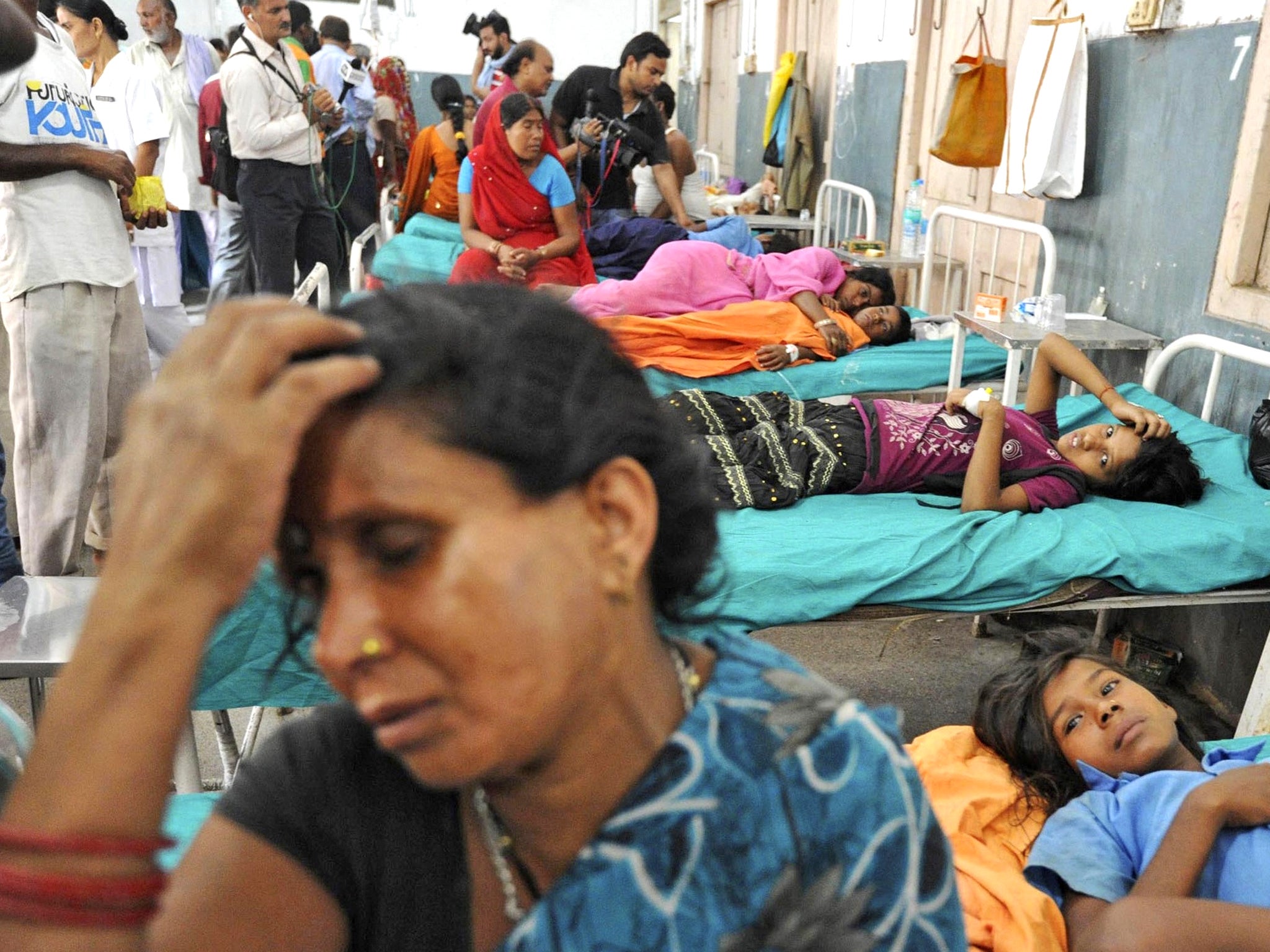Indian police arrest head teacher over poisoned school meals which killed 23 children in Bihar
Forensic tests revealed that the food contained toxic levels of a deadly pesticide

Your support helps us to tell the story
From reproductive rights to climate change to Big Tech, The Independent is on the ground when the story is developing. Whether it's investigating the financials of Elon Musk's pro-Trump PAC or producing our latest documentary, 'The A Word', which shines a light on the American women fighting for reproductive rights, we know how important it is to parse out the facts from the messaging.
At such a critical moment in US history, we need reporters on the ground. Your donation allows us to keep sending journalists to speak to both sides of the story.
The Independent is trusted by Americans across the entire political spectrum. And unlike many other quality news outlets, we choose not to lock Americans out of our reporting and analysis with paywalls. We believe quality journalism should be available to everyone, paid for by those who can afford it.
Your support makes all the difference.The head teacher at a school in India where 23 children died after they were served a meal containing contaminated oil has been arrested.
Meena Kumari fled as soon as the children began falling ill nine days ago, and has been in hiding since.
Angry crowds took to the streets after the children, between the ages of five and 12, died and many others fell ill at the school in the eastern Bihar state.
Forensic tests revealed that the meal of rice with soybeans and potatoes contained toxic levels of a deadly insecticide.
The protesters besieged the local police station, set four police vehicles alight, insisting that many would have survived had they got medical attention sooner.
At least 80 other children from the Navsrijit Primary School were affected by the outbreak.
The opposition BJP party criticised the time it took for children to be taken to hospital. Its leader, Pratap Rudy, said: “It took 15 hours to evacuate kids, it’s only after 17 kids died the authorities decided to shift them at midnight."
Police quickly registered a case of criminal negligence against Kumari. Investigators arrested her today and were questioning her to establish how the pesticide got mixed with the food.
Bihar's education minister, P.K. Sahi, has said the head bought the ingredients for the meal from a shop owned by her husband, who has also fled.
The school's cooks told authorities that the head controlled the food for the government-provided free daily lunch.
India's midday meal plan - a scheme monitored under a £25m UK government programme - is one of the world's biggest school nutrition programs and one of the key planks of the Indian government’s anti-poverty strategy.
It was first introduced in the 1960s in southern India, where it was seen as an incentive for poor parents to send their children to school.
Since then, it has spread across the country, covering some 120 million schoolchildren. It is part of an effort to address concerns about malnutrition, which the government says nearly half of all Indian children suffer from.
In Bihar, it is monitored by the UK government through a £25m grant from the Department for International Development (DfID) for its Poorest Areas Civil Society (PACS) Programme Phase II, which is due to run until 2015.
A DFID spokesman said UK money did not directly fund the scheme but helped to monitor the way it was implemented: “DFID does not fund the Midday Meal Scheme in Bihar. Our support to PACS helps communities to effectively monitor the implementation of the scheme.”
Join our commenting forum
Join thought-provoking conversations, follow other Independent readers and see their replies
Comments